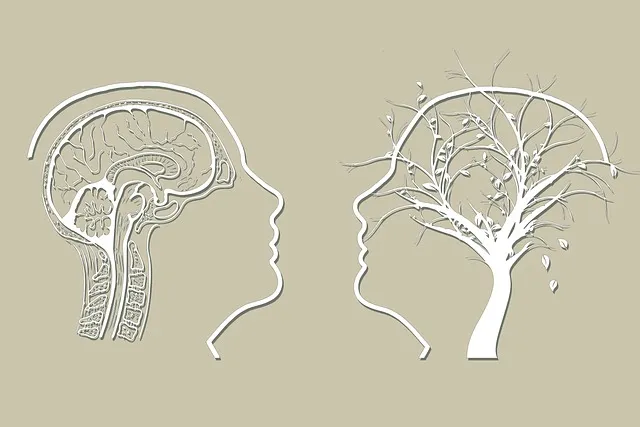Emotion regulation is a powerful tool for enhancing mental health and overall well-being, recognized by institutions like Colorado Springs Kaiser Permanente psychiatry. By identifying personal triggers, using cognitive strategies, practicing mindfulness and meditation, and adopting effective communication techniques, individuals can improve their quality of life and relationships. The Colorado Springs Kaiser Permanente psychiatry phone number offers accessible resources to learn and integrate these practices, fostering emotional resilience and mental wellness in a fast-paced world.
Emotion regulation techniques are essential tools for navigating life’s challenges. In this guide, we explore effective strategies that empower individuals in Colorado Springs to manage their emotional well-being. From understanding the fundamentals of emotion regulation to identifying personal triggers and employing cognitive strategies, we delve into actionable steps. Discover mindfulness and meditation techniques for inner calm and learn how to seamlessly integrate these practices into daily life, inspired by insights from Kaiser Permanente psychiatry professionals based in Colorado Springs.
- Understanding Emotion Regulation and Its Importance
- Identifying Triggers: Uncovering Personal Stressors
- Cognitive Strategies for Managing Emotions
- Mindfulness and Meditation Techniques to Calm the Mind
- Practical Applications: Incorporating into Daily Life
Understanding Emotion Regulation and Its Importance

Emotion regulation is a vital skill for maintaining emotional well-being and mental health, which is why it’s increasingly being recognized as a key component in promoting overall health at institutions like Colorado Springs Kaiser Permanente psychiatry. By understanding and managing our emotions effectively, individuals can enhance their quality of life and relationships. It involves recognizing and accepting one’s feelings while also learning to respond to them in healthy ways, especially during challenging situations.
This process is crucial for developing inner strength and resilience, enabling folks to navigate through stress, anxiety, and even trauma. Conflict resolution techniques, for instance, can be a powerful tool within emotion regulation strategies, helping individuals de-escalate tense situations and foster healthier interactions. Ultimately, these emotional well-being promotion techniques empower people to lead happier, more fulfilling lives.
Identifying Triggers: Uncovering Personal Stressors

In the journey towards effective emotion regulation, identifying triggers is a pivotal step. This process involves delving into one’s personal life and uncovering stressors that often go unnoticed but significantly impact mental health. Every individual has their own unique set of triggers—be it specific situations, people, or even thoughts that induce strong emotional responses. By recognizing these triggers, individuals can begin to navigate their emotions more consciously. For instance, someone in Colorado Springs might find that frequent traffic jams act as a catalyst for anxiety, while another person could identify certain social gatherings as sources of stress due to past experiences.
The process of identifying personal stressors is an essential aspect of Mental Health Awareness and fosters Emotional Healing Processes. It empowers individuals to take charge of their emotional well-being. Many find it beneficial to keep a journal to track triggers and associated emotions, helping them to connect the dots between seemingly unrelated events and their internal responses. This self-awareness is crucial for managing and regulating emotions effectively. Moreover, seeking support from healthcare professionals, such as those at Kaiser Permanente Psychiatry in Colorado Springs, can provide valuable guidance and insights into navigating these emotional challenges, ultimately contributing to overall Mental Wellness Podcast Series Production.
Cognitive Strategies for Managing Emotions

Cognitive strategies are a powerful tool for managing emotions and play a significant role in emotional regulation techniques teaching. By focusing on changing one’s thoughts and interpretations, individuals can influence their emotional responses. This involves challenging negative or distorted thinking patterns, such as catastrophizing or all-or-nothing thinking. For instance, if someone feels overwhelmed by stress, they might recognize that their thoughts are exaggerated and replace them with more balanced perspectives, leading to a calmer state of mind.
In the context of Colorado Springs Kaiser Permanente psychiatry services or similar mental health resources, these cognitive strategies can be effectively taught through various means, including the Mental Wellness Podcast Series Production, which offers accessible learning opportunities. By integrating Emotional Well-being Promotion Techniques into daily life, individuals can enhance their mental health awareness and better navigate emotional challenges. This proactive approach to mental wellness empowers people to take control of their emotional reactions, fostering overall emotional resilience.
Mindfulness and Meditation Techniques to Calm the Mind

In today’s fast-paced world, stress and anxiety are prevalent issues affecting individuals across various demographics. Thankfully, mindfulness and meditation techniques offer a calming counterbalance, with practices that have gained significant traction in the mental health community, even at renowned healthcare organizations like Colorado Springs Kaiser Permanente Psychiatry. By focusing on the present moment and cultivating awareness of one’s thoughts and sensations without judgment, these ancient practices can significantly enhance an individual’s ability to manage their mood and prevent burnout.
Mindfulness meditation encourages individuals to observe their mental processes as they are, promoting a sense of detachment from stressful thoughts and emotions. This, in turn, fosters resilience—the mental strength to bounce back from challenges. Whether through guided meditations or simple breathing exercises, these techniques offer accessible tools for anyone looking to improve their emotional regulation and overall well-being, ultimately empowering them to navigate life’s ups and downs with greater ease.
Practical Applications: Incorporating into Daily Life

Incorporating emotion regulation techniques into daily life is a powerful way to manage and maintain mental well-being. The practices learned in therapy sessions can be applied across various contexts, from work stress to personal relationships. One effective strategy is mindfulness meditation, which helps individuals become more aware of their emotions and responses without judgment. This increased awareness allows for earlier detection of emotional triggers, enabling one to choose a calmer reaction rather than reacting impulsively.
Additionally, communication strategies play a pivotal role in emotion regulation. Expressing feelings openly and assertively can help resolve conflicts and foster understanding. Building confidence through self-affirmation and positive self-talk empowers individuals to navigate challenging situations with resilience. By combining these techniques, people can develop inner strength that supports emotional stability and enhances overall quality of life, as demonstrated by the services offered at Colorado Springs Kaiser Permanente psychiatry phone number.
Emotion regulation is a powerful tool for enhancing mental well-being, and the techniques discussed here offer a comprehensive approach to managing emotions effectively. By understanding triggers, employing cognitive strategies, and integrating mindfulness practices into daily routines, individuals can gain greater control over their emotional responses. For those seeking professional guidance in Colorado Springs, the psychiatry services at Kaiser Permanente are readily available to provide personalized support and further education on these life-changing skills.






